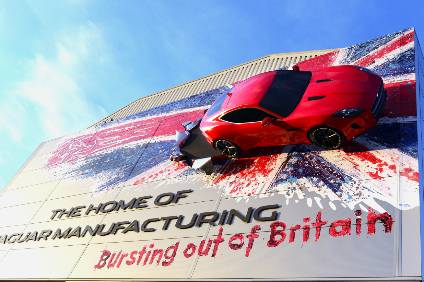
In a move that may help to de-escalate recent trade tensions between the US and China, Chinese President Xi Jinping has said China plans to lower tariffs on car imports this year.
During a speech at a development conference on the Chinese island of Hainan, Xi said China plans to lower import tariffs this year on products including cars. It was billed as part of “a new phase of opening up” China’s economy.

Discover B2B Marketing That Performs
Combine business intelligence and editorial excellence to reach engaged professionals across 36 leading media platforms.
Some reports have noted, however, that the Chinese government has already promised to “gradually and properly” reduce tariffs on imported vehicles. However, the latest remarks put a timeframe on that.
“We will take the initiative to expand imports,” Xi said in a keynote speech. “The country will work hard to import more products that are competitive and needed by the Chinese people,” he said.
“China does not seek trade surplus; we have a genuine desire to increase imports and achieve greater balance of international payments under the current account,” Xi said.
Reuters reported that Xi also said China would raise the foreign ownership limit in the automobile sector as soon as possible and push previously announced measures to open the financial sector.
Xi’s latest comments could help dampen fears of a trade war after the US proposed a raft of new tariffs applying to Chinese goods imported to the US and China retaliated with a list of US products that it would add 25% tariffs to. The proposed US tariffs are out for consultation in the US and wouldn’t be enacted until the end of May. China’s latest proposed list – which includes vehicles – would not be implemented unless the US implements new tariffs then.
European exporters of vehicles from the US to China – such as BMW – are concerned about the possibility of 25% tariffs applying to shipments of vehicles from the US to China.
In the UK, manufacturers such as Jaguar Land Rover, who export in large volume to China, could be potential beneficiaries of reduced import tariffs applying to vehicles shipped to China. Mike Hawes, SMMT Chief Executive welcomed the news of possible lower import tariffs to China. He said: “China is an important and growing market for UK built vehicles and exports increased 19.7% last year.
“It’s encouraging to hear that China is considering reducing import tariffs on cars as this will certainly encourage demand for Britain’s ever growing range of premium, luxury and sports vehicles.
“China is a crucial bilateral trading partner in terms of materials and components and, with automotive companies in both countries investing heavily in each other’s countries, a strengthened UK-China trading relationship, which respects free and fair trade can only deliver greater dividends. We hope that progressive trade tariff liberalisation in China and across the world can be achieved through international collaboration and any existing trade barriers can be quickly overcome.”
China currently charges an import tariff on finished vehicles of 25%. Import tariffs have encouraged OEMs to set up JVs in China and localise parts sourcing s much as possible, but many have complained that they have little control of their Chinese JV operations and warned of intellectual property abuses and pressures to transfer technology.






